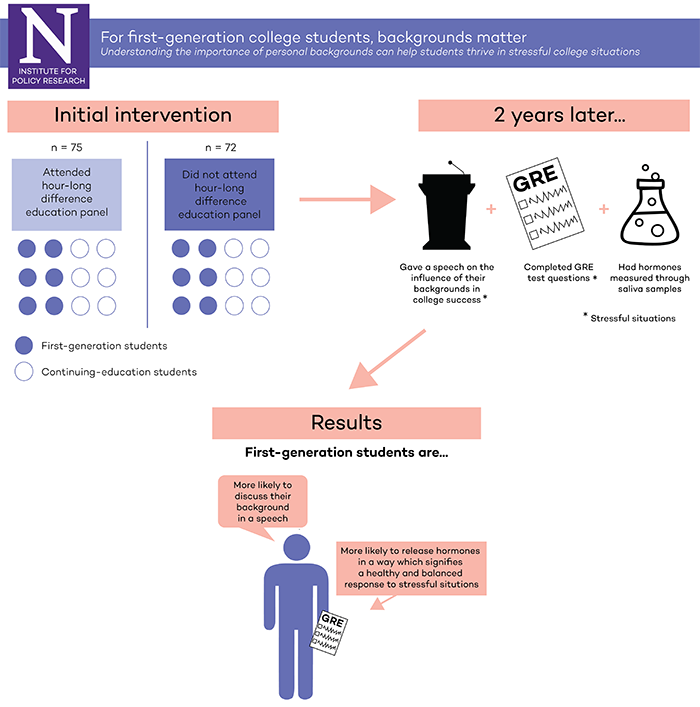Infographic: For First-Generation College Students, Backgrounds Matter
Understanding the importance of personal backgrounds can help students thrive in stressful college situations
Get all our news
Click on the image above to see a larger version of the infographic.
A minority at elite institutions, first-generation students suffer academically and psychologically on campus, surrounded by “continuing-generation” peers and faculty who often lack understanding of their situation.

Over a series of studies, IPR social psychologist Mesmin Destin and his coauthors have sought to remedy this situation by designing a “difference-education” intervention. They assigned incoming first-generation freshmen to attend an hour-long orientation session featuring first-generation and continuing-generation panelists. In one session, the panelists gave general advice on succeeding in college, such as, “Go to class and pay attention.” In the other, the panelists linked their backgrounds to their college experiences, acknowledging that students have different backgrounds, and explaining how those backgrounds could actually be a strength, rather than something to overcome.
In a follow-up study, Destin and his colleagues assessed students’ behavioral and hormonal responses to stressful college situations, two years after the initial intervention. Students were asked to deliver a speech on the influence of their backgrounds, and also completed GRE test questions. The researchers found that students who participated in the panel two years prior discussed their backgrounds in a speech more frequently than students in the control group, indicating that panel attendees retained the understanding of how their backgrounds mattered. Furthermore, the ratio of hormones among the first-generation students who attended the panel signified a healthier, more balanced response to the stress of making speeches and taking tests.
Mesmin Destin is assistant professor of psychology and human development and social policy, and an IPR fellow.
Published: February 29, 2016.
